More than a million doctors in India will strike work on Saturday and shut down hospital services amid snowballing protests over the rape and murder of a junior medic last week in the eastern city of Kolkata.
The doctor had settled down for a nap in a college lecture hall after working nearly 20 hours of a 36-hour shift when she was assaulted, according to staff at the RG Kar Medical College, run by the West Bengal state government.
She had slept on a floor carpet as there were no dormitories or resting rooms available for doctors, her colleagues told Reuters.
She was found dead last Friday, with police confirming that she had been raped and murdered.
The Indian Medical Association, the country’s largest association of doctors, said the 24-hour shutdown would affect most hospital departments except for essential services.
Hundreds of thousands of women in several Indian cities also rallied to “reclaim the night”, demanding justice for the doctor.
Their march, a powerful expression of defiance, was born from a deep and collective anguish over the incident.
The largest of the protests unfolded in Kolkata, where women, holding placards, candles and the national flag, welcomed the country’s 78th Independence Day at midnight by demanding justice for the doctor.
Riya Banerjee, a 22-year-old student, said she had walked more than 5km to take part in the protest after roads became impassable for traffic, as it was “important for everyone to step out of their comfort zone and raise their voices”.
“We want justice for [the victim],” she told The Independent earlier. “We want to reclaim public space. Why should we live in fear of being abused by men?”
The woman’s rape and murder has sparked nationwide protests, reminiscent of the 2012 Delhi gang-rape case. Political parties, including the Narendra Modi-led Bharatiya Janata Party, are organising protests, while public figures are calling for stricter punishments for crimes against women.
Five men and a juvenile lured a 23-year-old trainee physiotherapist and her male friend on to a bus in New Delhi on 16 December 2012, before repeatedly raping the woman and beating both with a metal bar and dumping them on a road. The woman died of internal injuries nearly two weeks later in a Singapore hospital.
Despite tougher laws introduced after 2012, activists argue that little has changed in ensuring women’s safety. In 2022, an average of 86 rapes were reported in India every day.
Protests erupted at over 100 locations across Kolkata and extended to nearby towns in West Bengal late Wednesday, with rallies continuing into Thursday morning in several other Indian cities including the capital New Delhi.
“We want justice,” read one sign at a Kolkata rally. “Hang the rapist, save the women,” read another.
“Doctors nationwide are questioning what is so difficult about enacting a law for our security,” Dhruv Chauhan, from the medical association’s Junior Doctors’ Network, told the Press Trust of India news agency. “The strike will continue until all demands are formally met.”
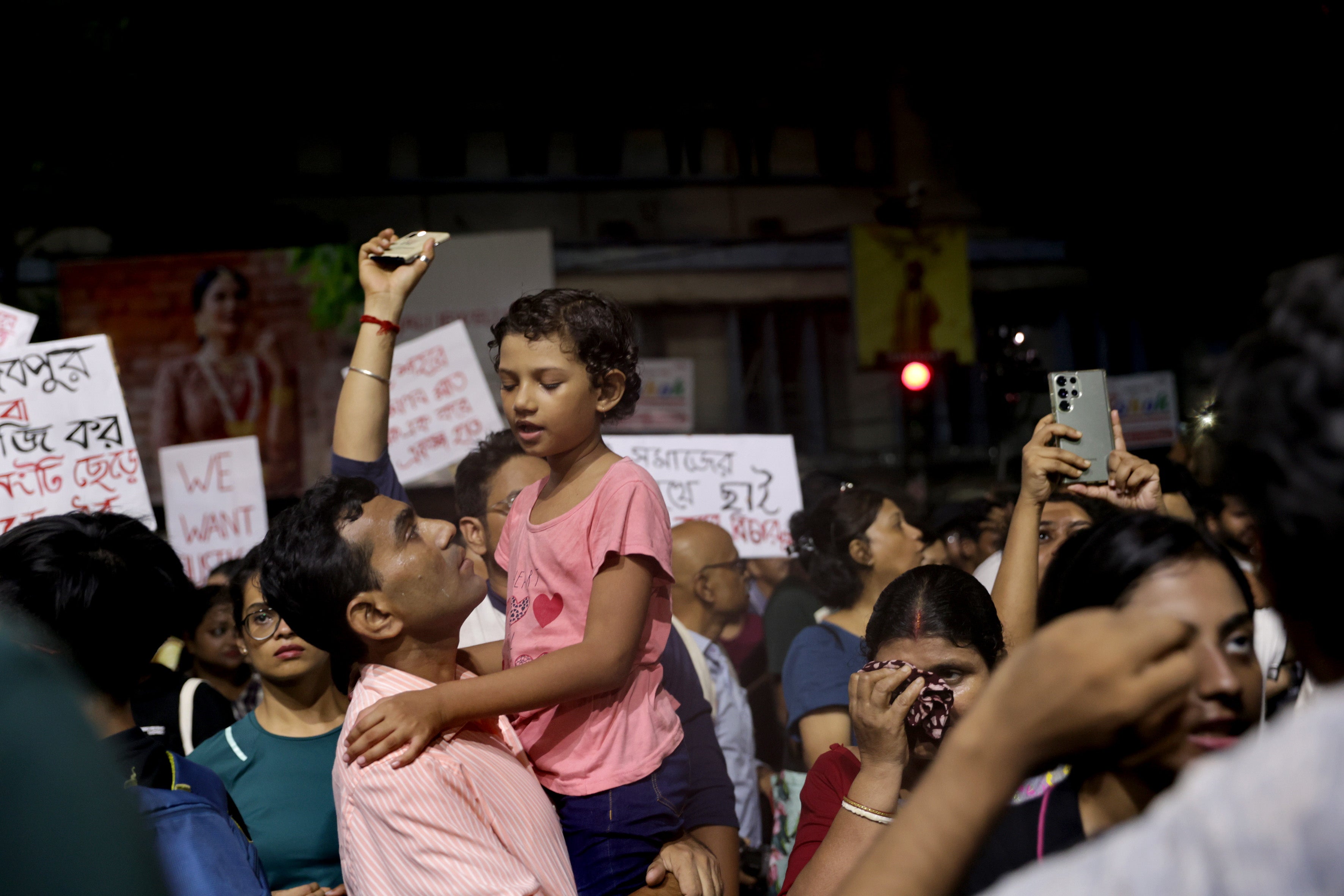
Meanwhile, during his Independence Day address in New Delhi on Thursday, Mr Modi did not directly mention the Kolkata incident but conveyed his deep sorrow over ongoing violence against women.
“There is anger for atrocities committed against our mothers and sisters, there is anger in the nation about that,” he said.
“Crimes against women should be quickly investigated; monstrous behaviour against women should be severely and quickly punished,” he added.
“That is essential for creating deterrence and confidence in the society.”
A civil volunteer named Sanjay Roy, associated with the Kolkata police, has been arrested in connection with the case, which has now been handed over to the federal investigative agency Central Bureau of Investigation following demands for an impartial and transparent inquiry.
More protests were planned for Friday even as the ongoing strike severely impacted non-emergency medical services at government hospitals nationwide, affecting thousands of patients.
The National Federation of Resident Doctors Association, a key union, is calling for a thorough investigation, compensation for the victim’s family, and the establishment of a new law to specifically address violence against healthcare workers.
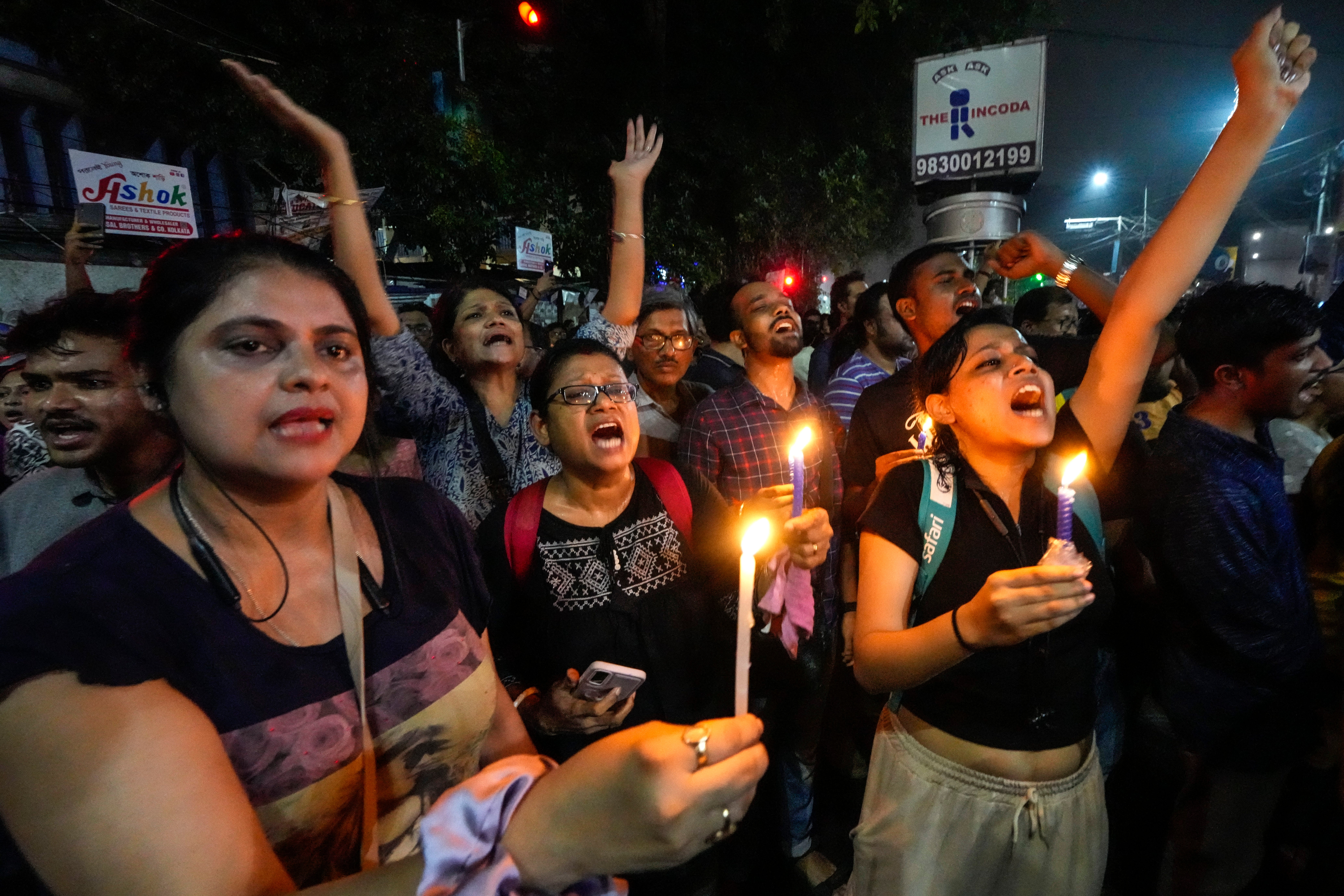
“Not any more,” shouted Debjani Roy, who joined the protest at College Square in Kolkata with her two young daughters. “They needed to witness the protest so that when they grow up, they are able to hit back at any man who dares to harass them,” she told The Independent earlier.
“It is not just about one night. Every night, women should have this freedom and choice to go out, so that in future no girl child’s parents have to think in case it gets late in the evening, whether their child shall return home safe or not,” Shalini Datta, one of the demonstrators, told The Telegraph.
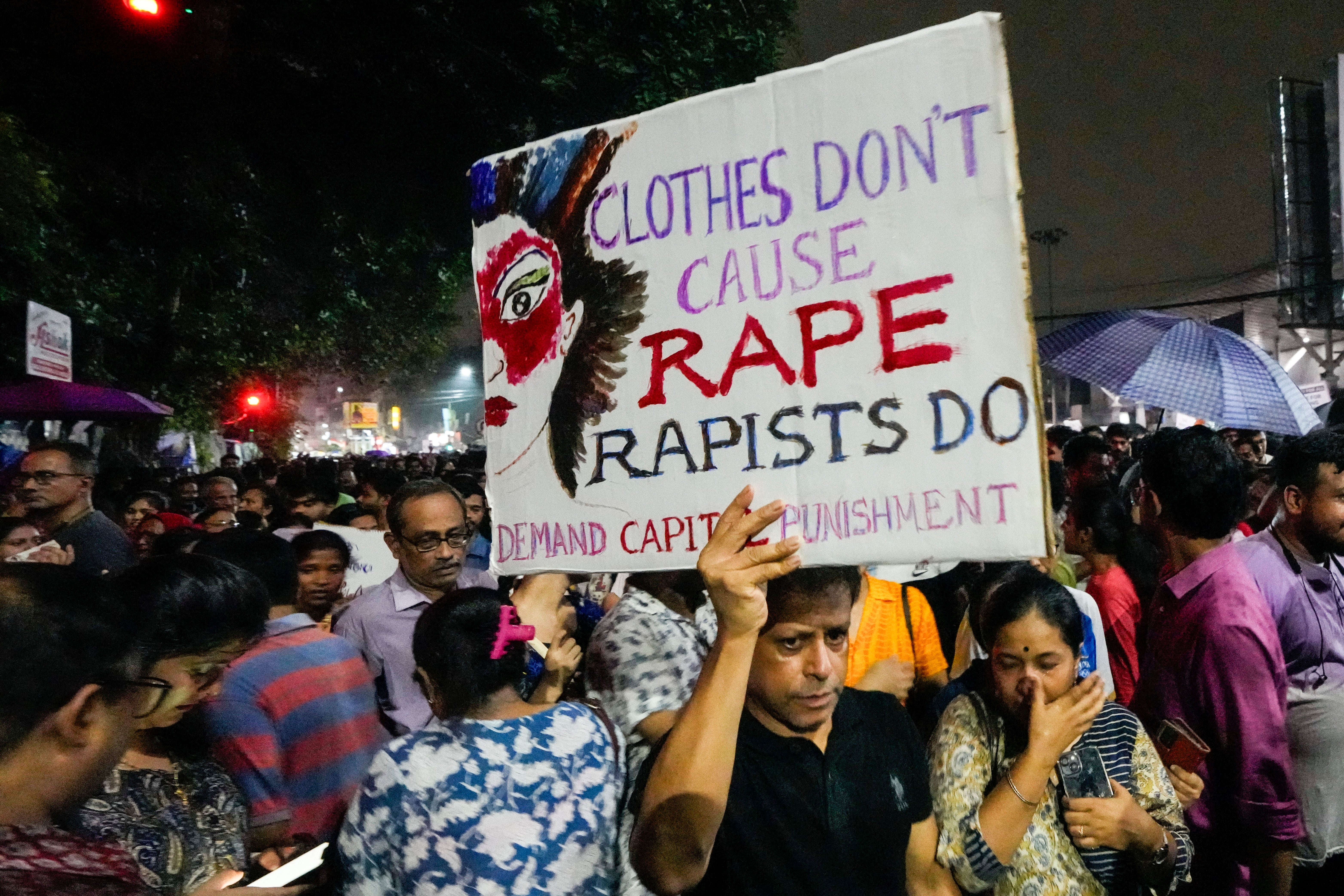
Across several cities, hundreds of thousands of women marched to chants of “reclaim the night”.
Pinjala Kundu, a PR manager at a fintech company was quoted as saying by the Mint newspaper: “I personally didn’t expect the whole city to turn up at the protest march. I was pleasantly surprised to see that my city still has a spine. It was heartening to see mothers walking hand-in-hand with their daughters. Even fathers let the daughters take the lead while they stood behind like rocks.”
Rimjhim Sinha, the driving force behind the “Reclaim the Night” movement, described the event as a new freedom struggle for women, encapsulated by a powerful viral poster depicting a red hand gripping a crescent moon.
Ms Sinha, a social science researcher and 2020 sociology graduate from Presidency University in Kolkata, was deeply shocked by the rape and murder of the junior doctor.
Angered by a victim-blaming comment from the medical college’s ex-principal, she decided to spend Independence Day eve outdoors in protest. Sandip Ghosh had allegedly questioned why the junior had gone to the seminar hall alone.
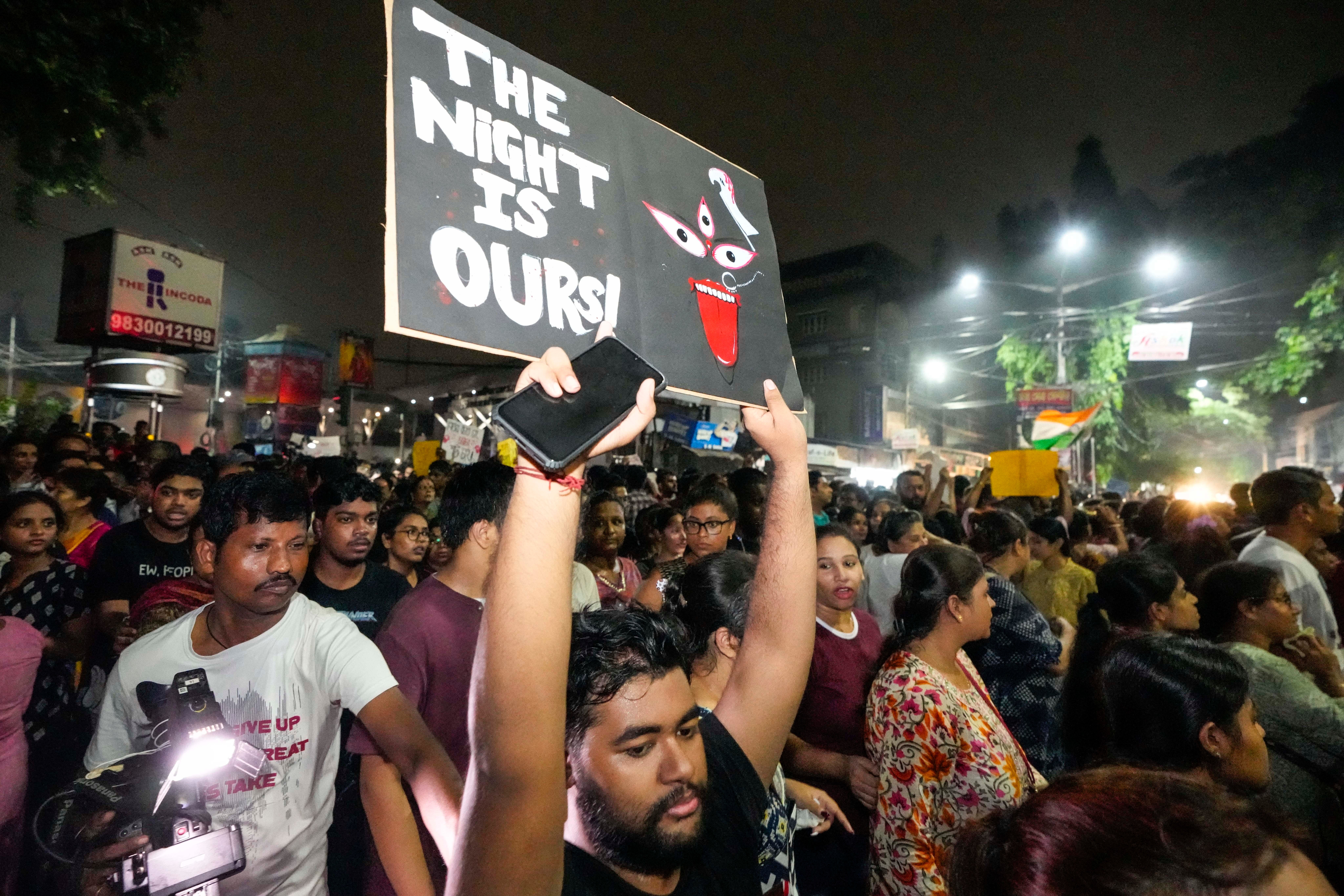
“Such a comment, shifting the blame on the victim, cannot be accepted. In protest, I decided to spend the night of 14 August outdoors. No one can lay a claim on the night and dictate to us who can be outside and why,” she told The Kolkata-based newspaper The Telegraph.
Ms Sinha’s Facebook post about her decision unexpectedly went viral, leading to thousands joining her on the streets.
She expressed her surprise and overwhelming emotion at the widespread response, noting that many women joined the protest, even if only for a few hours. “I am very overwhelmed by the entire response. I am seeing women coming out of their homes and even if they cannot stay for the entire night, they are making a decision to stay for two hours or three hours in the night,” she was quoted as saying by News18.
The “Reclaim the Night” movement is a global movement that started in the 1970s, advocating for women’s rights to feel safe and be free from violence, particularly in public spaces at night.
The movement often features protests, marches, and vigils where women and their allies take to the streets at night, symbolically reclaiming these spaces and challenging societal norms that limit women’s freedom and perpetuate victim-blaming.
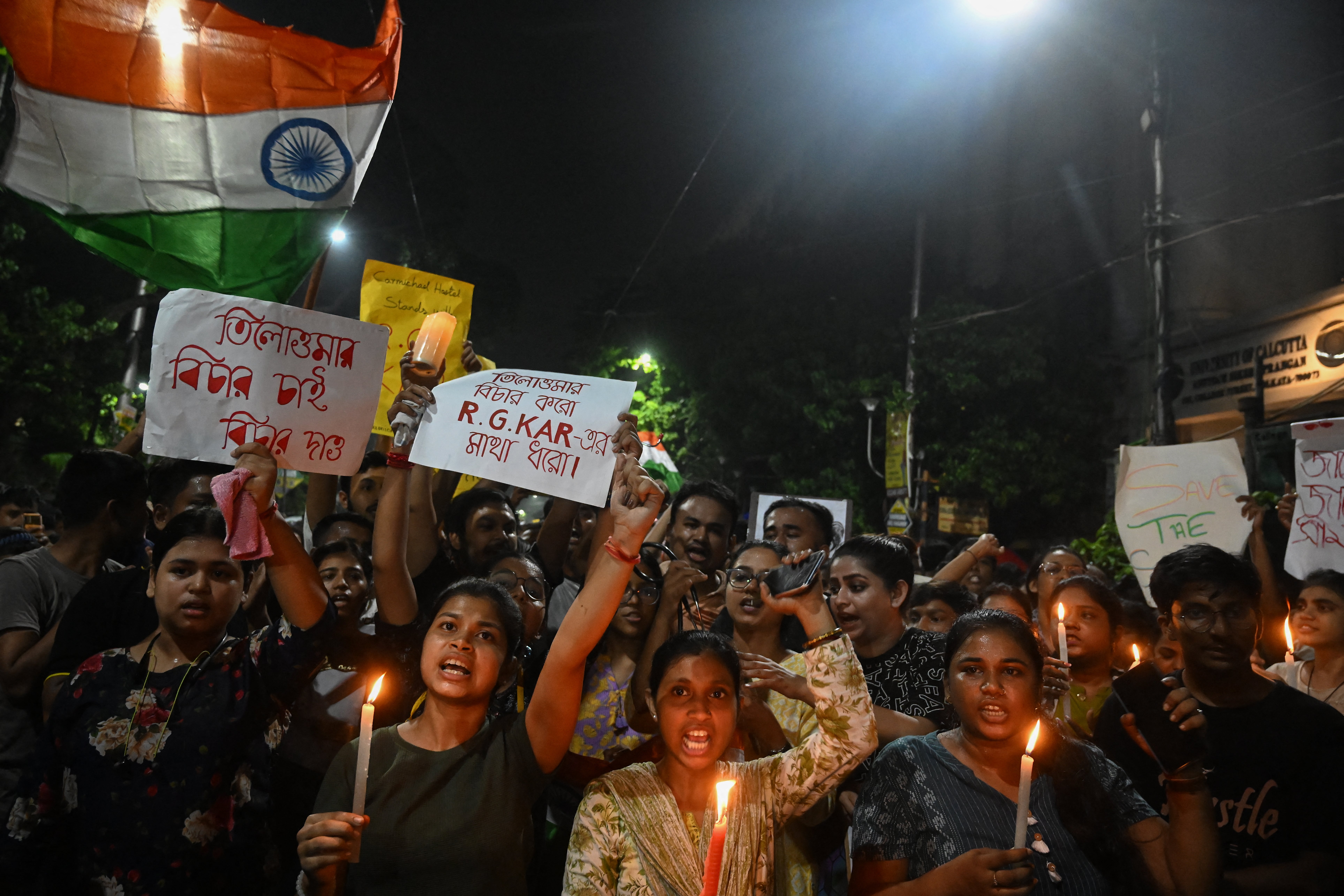
“Reclaim the Night” seeks to address issues such as sexual assault, harassment, and gender-based violence, advocating for safer communities and greater awareness of these critical concerns.
Ranjana Kumari, the director of the Centre for Social Research, told The Guardian: “It makes my blood boil when I see this silence when I read how he butchered her, this total neglect of safety at the hospital. Nothing, nothing has changed since 2012. The room where it happened didn’t even have a CCTV camera.”
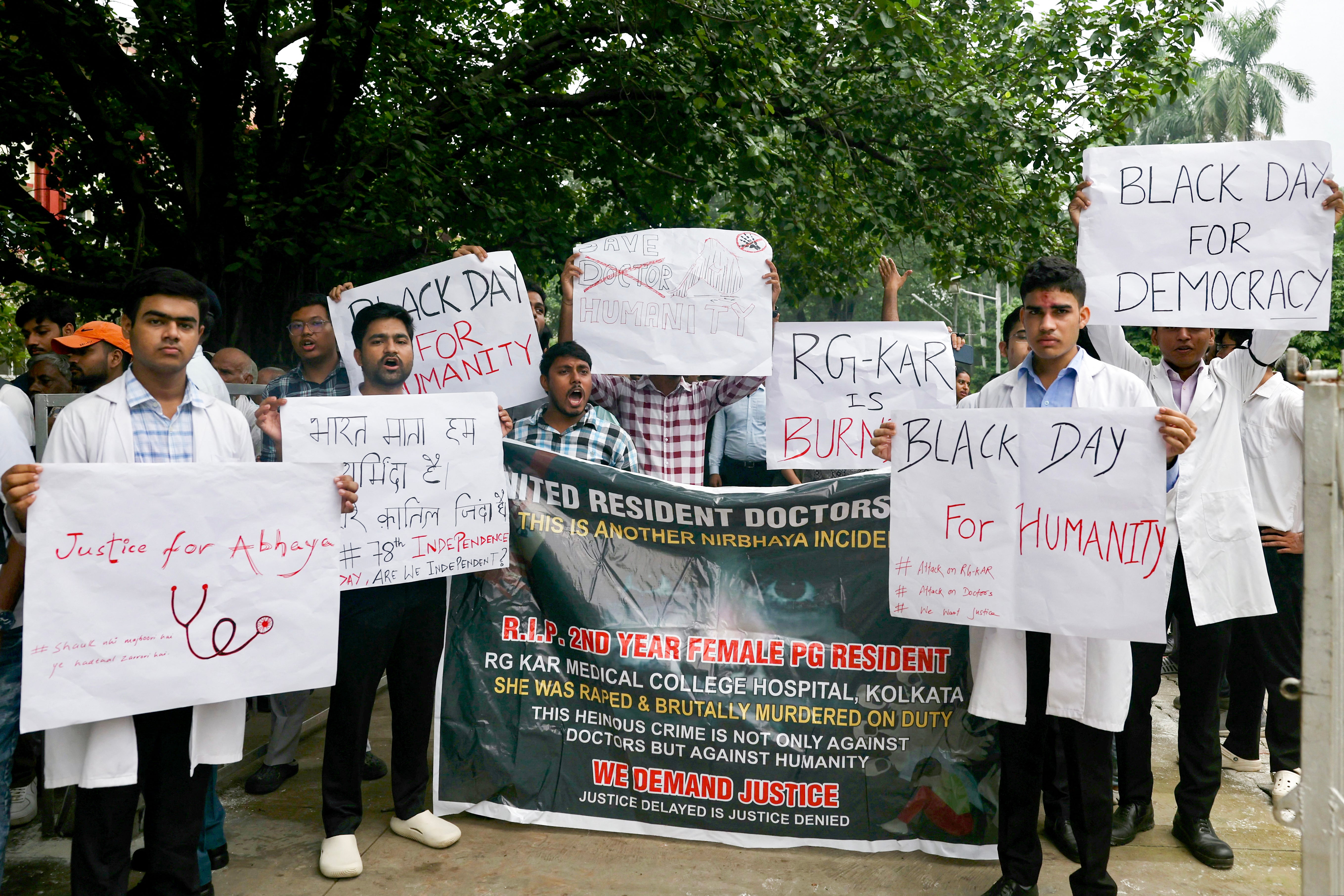
The anguished and grieving father of the junior doctor told The Indian Express that he would not accept money from the government.
“If I accept money for my daughter’s death, it will hurt her. We need justice. We have rejected the compensation and won’t take any in the future too.”
A member of parliament in India, Kanimozhi also wrote on X: “The entire country is shaken by the gruesome incident of rape and murder of a junior doctor in Kolkata. The details of the cruel and inhuman act against her shocks us to our core. We are forced to think that if any woman is safe anywhere in India. We should stand up and act.”
She added: “I stand with the victim’s family in this unbearable pain.”

